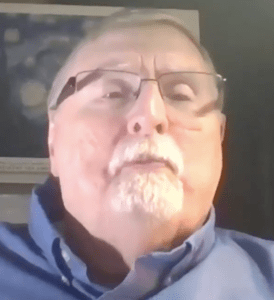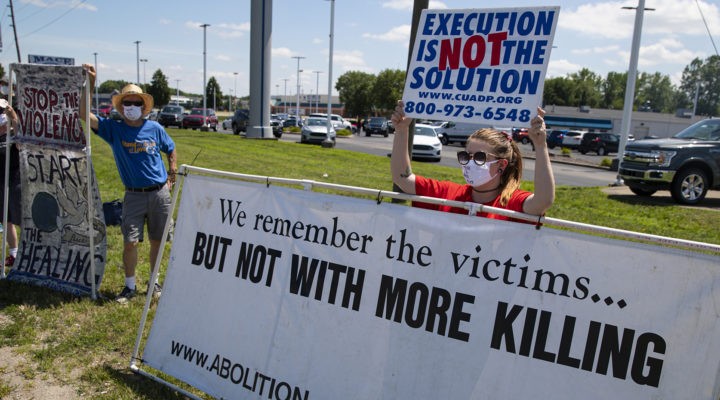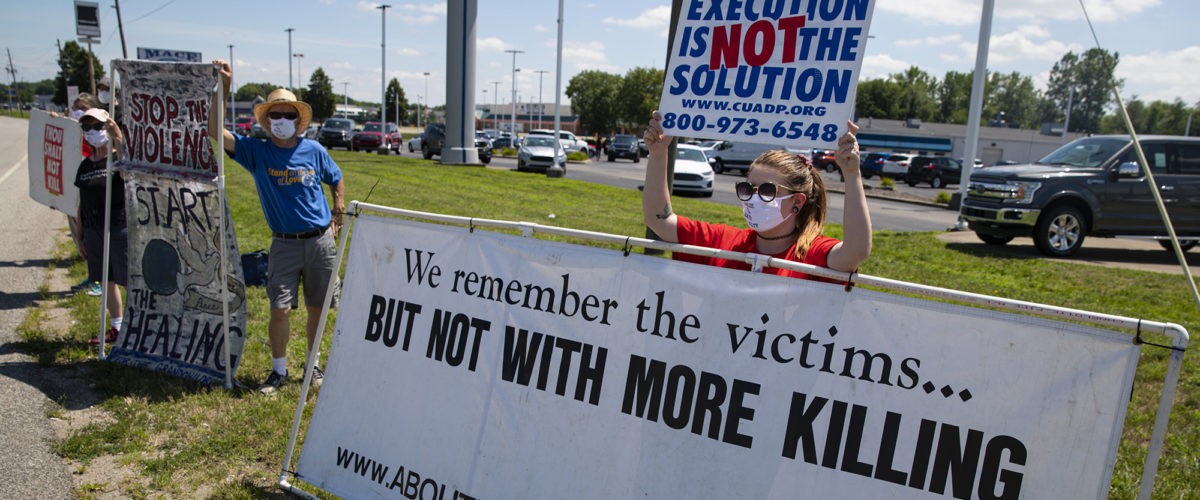Evangelicals must put their political and spiritual weight behind abolishing the death penalty because supporting the practice is tantamount to playing God, an evangelical preacher said during an online rally held to end executions in Ohio.
“I never want to get to a point in my life where I think I can play the role of God, to where I can say someone’s actions can be grounds for them to be … exterminated,” said Demetrius Minor, national manager of Conservatives Concerned About the Death Penalty. He spoke during “Why the Death Penalty is Dying,” a Nov. 10 livestreamed event hosted by Ohioans to Stop Executions, the Ashland Center for Nonviolence and Equal Justice USA’s Evangelical Network.
While speakers presented numerous political, fiscal and ethical arguments against capital punishment, they also leaned heavily on theological and moral teachings to oppose the death penalty.
Minor described himself as a conservative Christian minister who came to realize that being pro-life should not mean being solely against abortion.

Demetrius Minor
“As I began to evaluate my morals and my values and my principles, and what I actually stood for as a Christian, I found out there was a moral contradiction,” he said. “So, for evangelical conservatives, I would simply request that they should have moral consistency in their beliefs. If you’re pro-life, you have to be pro-life all the way.”
Minor said his ministry is to break through to fellow evangelicals that state-sanctioned killings are incompatible with Jesus’ teachings. “I want to compel conservatives, those like me who are pro-life, to not be halfway with this but to be consistent. The term is ‘pro-life from the womb to the tomb.’”
Taking the faith-based tack against capital punishment has worked before — most recently in Virginia, which in March became the 23rd state to abolish the practice.
That victory for death penalty opponents came after months of grassroots organizing by the Virginia Interfaith Center for Public Policy, which held statewide press conferences and vigils featuring ministers preaching against the racial, economic and spiritual injustice of capital punishment.
Ohioans to Stop Executions has expressed confidence that Ohio’s death penalty can meet the same fate.
In January, Gov. Mike DeWine signed a bill into law exempting people with serious mental illnesses from being sentenced to death, while state House and Senate bills were introduced with bipartisan support in February to repeal the death penalty.
And a Fall 2020 survey by the Terrance Group reported that 59% of Ohioans prefer replacing capital punishment with sentences of life without parole.

Jennifer Pryor
“Ending the death penalty is a direct response to the goal of ending violence,” said Jennifer Pryor, director of organizing for Ohioans to Stop Executions. “Many associate the death penalty with justice, but rarely as state-sanctioned violence.”
Baseless claims and scare tactics are the only answers pro-death penalty supporters offer, she added. “The facts are that the death penalty does not deter crime, does not help solve crimes and does not give closure to victims’ families. What it does is cause additional trauma at the expense of taxpayers.”
Speaker Alan Johnson witnessed much of that trauma as a now-retired reporter covering the state’s prison system for The Columbus Dispatch.
Johnson said he routinely noticed that those sentenced to death were mostly minorities and from economically challenged backgrounds. Not once did he see a person of wealth sent to Death Row.

Alan Johnson
And executing prisoners does not save the state money, as proponents claim, he added. “The death penalty is not a cost-saving measure. It’s a cost-expense measure to the taxpayers” that is far more expensive than incarcerating a prisoner for life.
But Johnson said he began to more fully appreciate the injustice of the practice after his return to church life, which initially led him to become “concerned that I wasn’t concerned by the fact I was watching men be executed.”
Johnson, who personally witnessed more than 20 executions during his 33 years at the paper, said it increasingly disturbed him to know he was “watching people murdered in my name and in your name.”
It also became clear that the “eye-for-an-eye” argument favored by death penalty proponents missed the point of the Old Testament verse. “It was mean to limit punishment, not increase it to the maximum,” said Johnson, who earned a doctor of ministry degree from Ashland Theological Seminary in Ohio with a focus on capital punishment in his dissertation.
In his ministry, Jesus demanded forgiveness instead of retribution, Johnson added. And in his view, citizens are culpable for the executions carried out by the state. “The death certificate says ‘homicide,’ so you and I commit homicide in each of these cases.”

Sam Heath
In a statement announcing the livestream event, Sam Heath of Equal Justice USA said people of faith must be among the leaders in the campaign to end capital punishment.
“Evangelicals believe that all people are valuable, that no person is more or less valuable than another,” said Heath, manager of the organization’s Evangelical Network. “The death penalty in Ohio is fraught with racial bias. The death penalty in Ohio sends the message that people of color are valued less. We reject that because people deserve more dignity than that. Ohio’s death penalty must end.”
Related articles:
Final vote sounds the death knell for capital punishment in Virginia
The death penalty is dying a slow death; it’s time we pull the plug | Analysis by Stephen Reeves
What I learned working in a Texas prison: Retribution, not reformation | Analysis by Michael Chancellor


